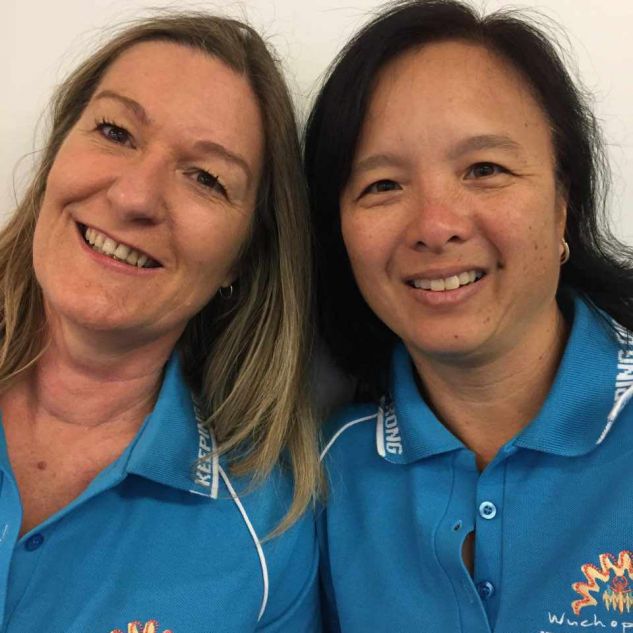How pharmacy makes a difference
For former nurse and JCU pharmacy graduate Kate Gill, a career as a pharmacist has provided many diverse opportunities to improve the health care of people at a local level.
Her most recent role as an ‘embedded pharmacist’ at Wuchopperen Aboriginal health service, based in Cairns, is a particular stand-out experience.
“My role at Wuchopperen was vastly different to anything I’ve ever done before. Being an embedded pharmacist meant I became an integral part of the wider health team, which made a huge difference to the patient’s care,” said Kate.
“It meant I could act as a resource person for the team regarding medications and how they might impact the client’s overall health. This included the health centre’s doctors, nurses, Aboriginal health workers, psychologists, dietitians and exercise physiologists. I felt my pharmaceutical knowledge was being used in all these areas to improve the care of the patient.”
Passion for patients
According to Kate, another important benefit of having pharmacists working within a primary health care setting is that they are able to follow up with the patient directly in their home after a hospital discharge.
“But having a pharmacist on board meant I was able to visit the patient in their home and check-up on their medications, as well as help the patient access their closest local community pharmacist and bring them into the clinic for ongoing care with their local doctor.”
Kate’s work with Aboriginal and Torres Strait Islander peoples began when she was working in a community pharmacy in Cairns, which also provided an outreach clinic and home visits to residents of Yarrabah Aboriginal community. However, she credits her studies at JCU to first sparking her interest in the health of Indigenous Australians.
“We had some cultural subjects as part of the JCU pharmacy degree, with tutors who had worked in Aboriginal and Torres Strait Islander communities and they opened my mind about how to work in different ways with these communities. I also find Aboriginal and Torres Strait Islander culture quite fascinating, there’s always so much to learn.”
Having pharmacists such as Kate working within Aboriginal community-controlled health services (ACCHS) such as Wuchopperen represents a newly emerging way of integrating pharmacists and community pharmacy into the overall health care of a patient, and is a role that may expand more widely into a range of health services, including general practices.
“I’m really excited about the way pharmacist careers are heading in the future,” said Kate. “Having pharmacists embedded into clinics as part of the health team has shown great results for us and there is a push to get this happening in more places."
“The COVID-19 pandemic has also helped to open people’s eyes to the essential service that pharmacists offer, and has helped us to build more relationships with doctors, which I think is going to continue to grow.”
"No two days are the same. There is just so much diversity to a career as a pharmacist and it's so rewarding as you really get to see the difference you can make to someone's health."
Kate Gill, JCU Pharmacy Graduate


Kate’s experience was part of a larger project in which culturally trained pharmacists were integrated into 22 ACCHSs located in Queensland, Victoria and the Northern Territory.
While the trial is currently being evaluated by JCU researchers, Kate continues to carry out home visits for the health centre’s clients in her capacity as a specialist trained ‘consultant’ pharmacist.
“It can make such a big difference to the patient’s health outcomes when you carry out home visits as you’ve got the time to properly explain how the medications work. I usually spend about an hour in someone’s home and the clients really appreciate it, they tend to relax and feel comfortable talking about their concerns.”
In addition to conducting home visits (called home medicines reviews) for other health services, Kate also keeps busy doing locum work in community pharmacies and has also previously conducted medication reviews for aged care homes.
“Since I’ve become a pharmacist, no two days have been the same. There is just so much diversity to a career as a pharmacist and it’s so rewarding as you really get to see the difference you can make to someone’s health.”
The IPAC (Integrating Pharmacists within Aboriginal Community Controlled Health Services to Improve Chronic Disease Management) project is a collaborative partnership between James Cook University, the Pharmaceutical Society of Australia and the National Aboriginal Community Controlled Health Organisation (NACCHO).